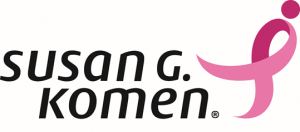NOW ENROLLING IN PHASE 4!
Welcome to the online home of the Carolina Breast Cancer Study family of studies!
The Carolina Breast Cancer Study, or CBCS, is a groundbreaking research endeavor of the UNC Lineberger Comprehensive Cancer Center since 1993. A multidisciplinary study from the start, CBCS combines public health epidemiology research methods with clinical tracking, genetic and genomic analyses, advanced medical records abstraction, qualitative methods recording breast survivors’ stories, and more.
What makes CBCS stand out?
CBCS researchers are always looking to innovate, using the latest research and techniques to advance the breast cancer study.
CBCS researchers are always looking to collaborate. CBCS is a proud member of associations and groups that combine multiple sites’ data, expanding researchers’ ability to look into the most challenging breast cancer questions out there.
CBCS are committed to equity. In the United States, a breast cancer diagnosis can mean different things depending upon who you are and where you live. CBCS has one of the largest populations of Black or African American women of any population-based breast cancer study. We are looking to increase our representation of American Indians and Alaska Natives. And as urban areas continue to grow in size and population, we are making sure that North Carolina’s rural population remains well-represented.
Why is CBCS important?
Every year in North Carolina, approximately 5,500 women continue to be diagnosed with invasive breast cancer. While breast cancer as a whole is more treatable than ever, not every type of breast cancer is, and not everyone enjoys the same rates of successful outcomes. Nationwide and at home, Black women have worse outcomes than women identifying with other races. And Black women under the age of 50 are burdened extra by triple negative breast cancer.
If you hear from CBCS, know that you’ve been specially selected to represent North Carolinians like you in this vital research. By sharing a few hours of your time with us, you’ll be a representative on the world’s stage. North Carolina has a special mix of people and places that make breast cancer research conducted here improve treatment and other research across the United States and beyond.
What is CBCS?
CBCS is a family of studies that build off their predecessors, but each asks something new.
CBCS1 |
CBCS2 |
CBCS3 |
CBCS4 |
Oral History Project |
Benign Breast Disease Project |
| 1993-1996
|
2000-2004
|
2008-2013 with ongoing follow-ups
|
2023-ongoing
|
2023-ongoing
|
Coming in 2024!
|
| What increases women’s risk of breast cancer? | How does the cancer’s biology–its “subtype”–affect outcomes? | What is causing Black women, especially under age 50, to have poorer outcomes? | What barriers affect access to treatment, outcomes, and survivorship? | What do women’s stories of diagnosis, battling cancer, and becoming survivors teach us? | Can new techniques better identify women’s risk of cancer after a benign tumor is identified? |
What makes CBCS possible?
CBCS is possible because of the dedication, determination, generosity, and advocacy of the People of North Carolina.
CBCS is conducted by the Lineberger Comprehensive Cancer Center in affiliation with the Gillings School of Global Public Health at the University of North Carolina at Chapel Hill. It is funded in part by the University Cancer Research Fund, the National Cancer Institute‘s Specialized Program of Research Excellence (SPORE) in breast cancer, the UNC Lineberger TNBC Center (Triple Negative Breast Cancer Center), and Susan G. Komen For the Cure.
See News & Events for the latest in what’s happening with CBCS and about breast cancer across North Carolina, including a new profile of CBCS’s Principal Investigator in Center Lines and news about a $25 million dollar gift to study breast cancer at UNC.
Watch our informational video.
Thank you to continued support from:
